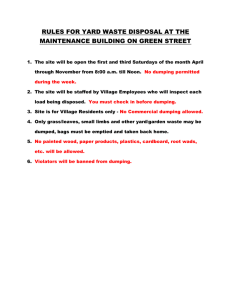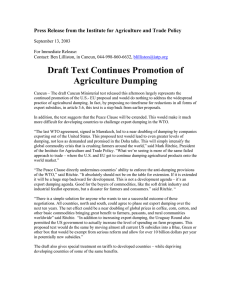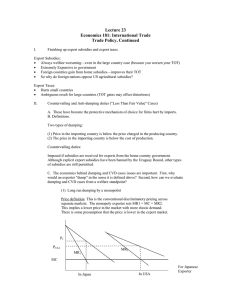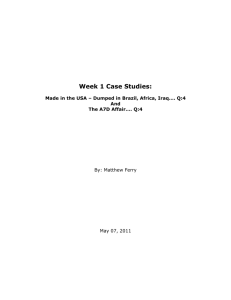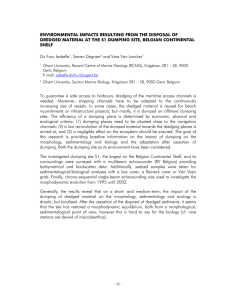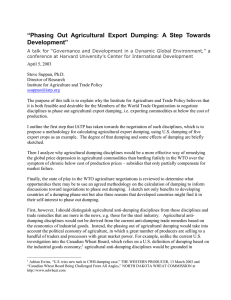Commercial Trade Policies
advertisement
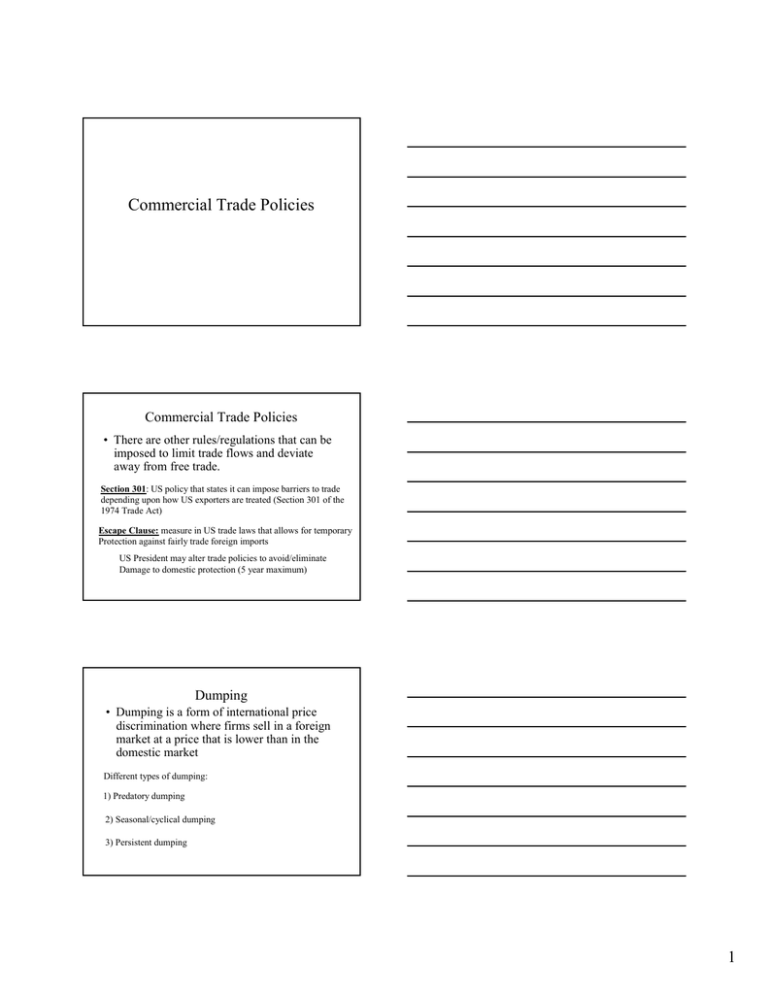
Commercial Trade Policies Commercial Trade Policies • There are other rules/regulations that can be imposed to limit trade flows and deviate away from free trade. Section 301: US policy that states it can impose barriers to trade depending upon how US exporters are treated (Section 301 of the 1974 Trade Act) Escape Clause: measure in US trade laws that allows for temporary Protection against fairly trade foreign imports US President may alter trade policies to avoid/eliminate Damage to domestic protection (5 year maximum) Dumping • Dumping is a form of international price discrimination where firms sell in a foreign market at a price that is lower than in the domestic market Different types of dumping: 1) Predatory dumping 2) Seasonal/cyclical dumping 3) Persistent dumping 1 Retaliation Against Dumping 1) Reciprocal Dumping 2) Antidumping duties – imposed on those goods that are being dumped into your country Export Subsidies • Exports are often subsidized rather than taxed. Issues surrounding export subsidies: 1) Why favor exports rather than domestically sold products? 2) Why do some countries subsidize exports and restrict imports? Export subsidies – GATT rules them “unfair competition” Countervailing duties – import duties placed on goods that receive export subsidies Other NTBs 1) Government Procurement Policies 2) Health/Safety Standards 3) Domestic Content Requirements – “Rules of Origin” 4) Intellectual Property Rights 2 Protection • Why do we impose barriers to trade? • Are there valid reasons for protection? Reasons often used to validate protection: 1) Patriotism 2) Employment 3) Infant Industry Protection 5) Preservation of home market 7) Income redistribution 4) Fair/Foul Play 6) Government Revenue 8) National Defense Are any/all of these valid reasons for protection? Why or Why not? 3
